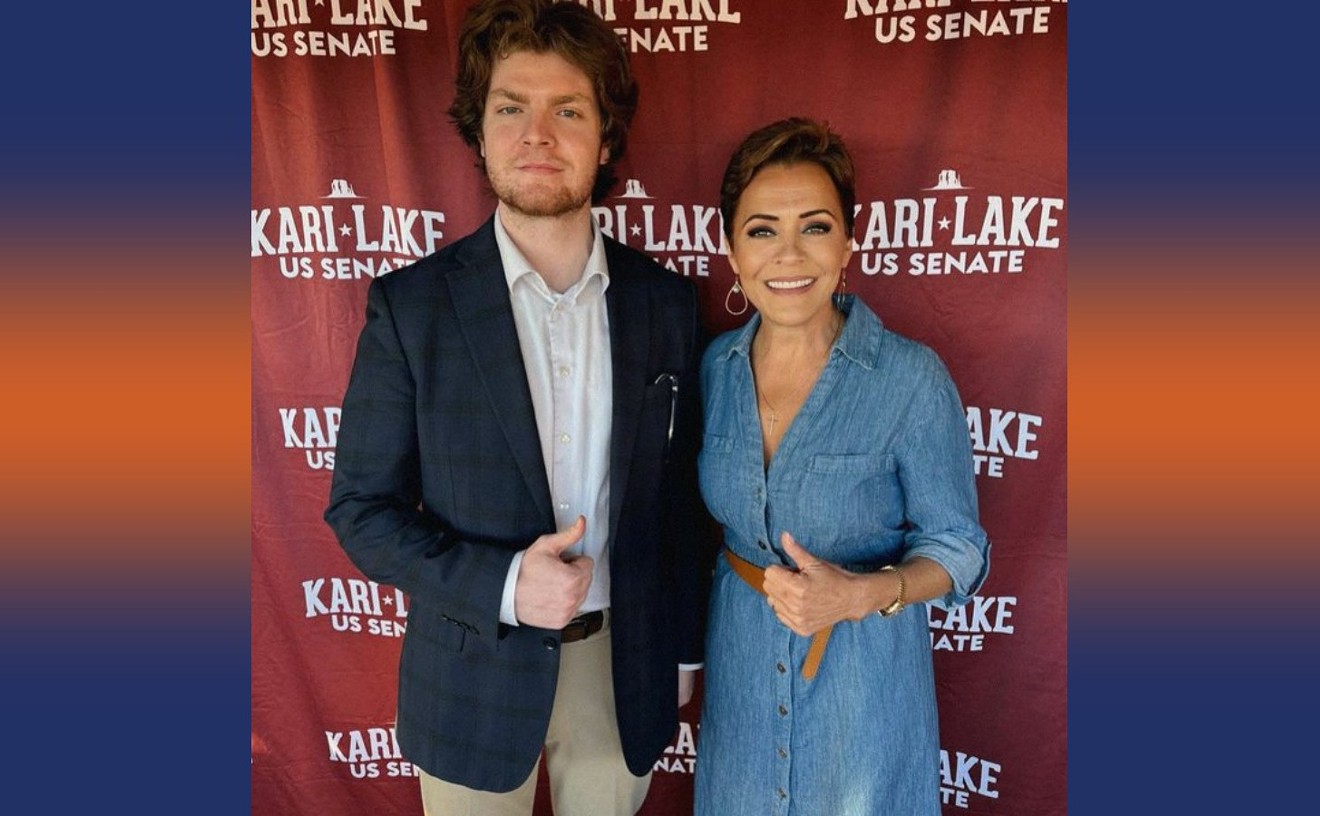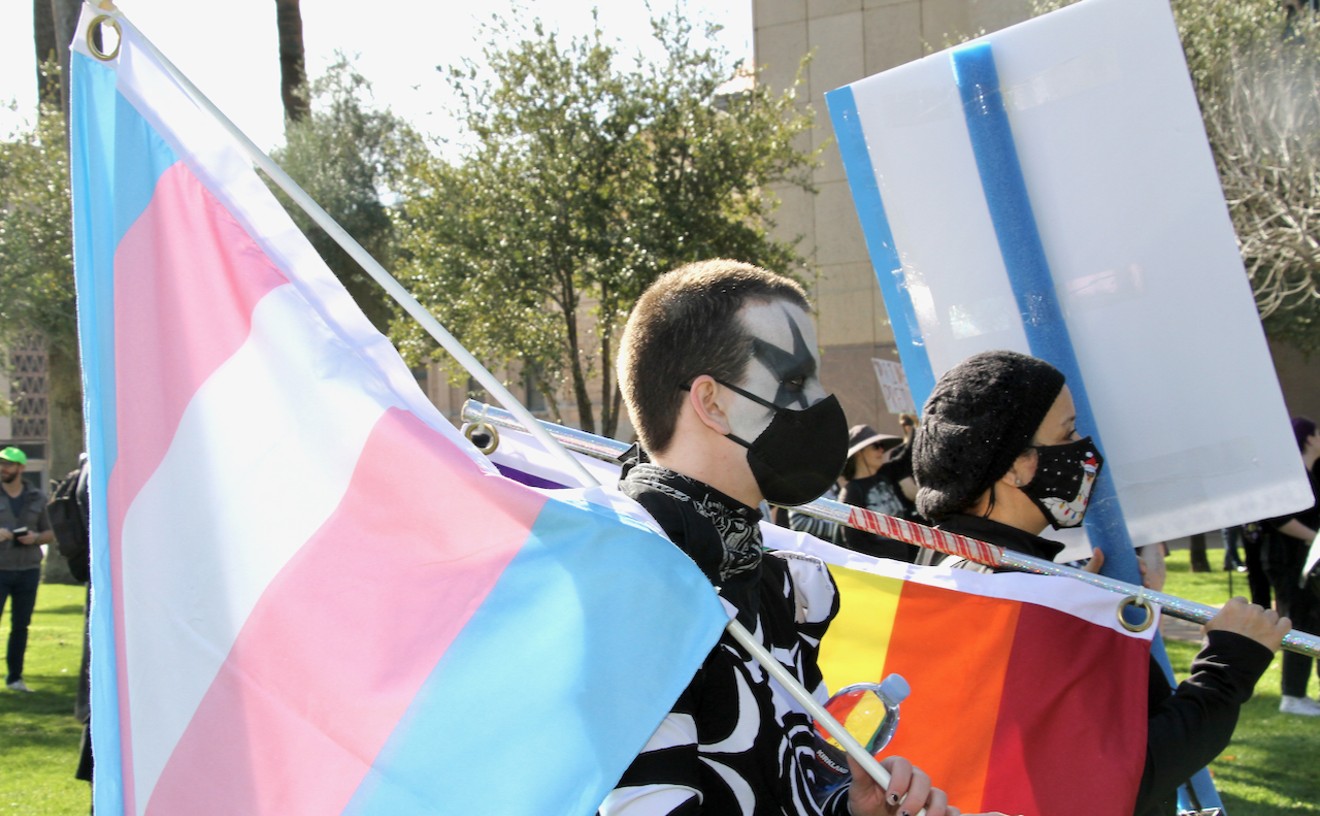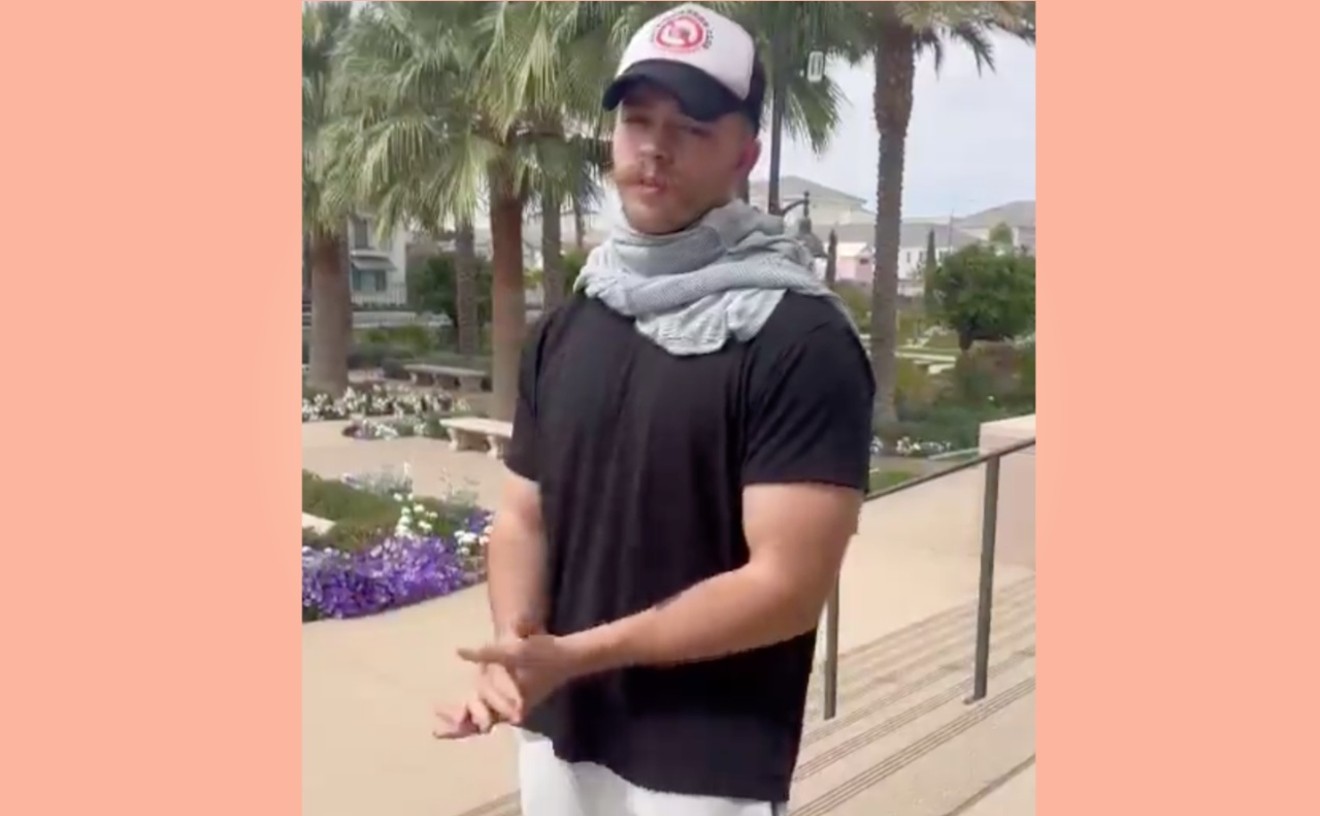Faleh Almaleki probably will die in prison, where a county judge has sent him for murdering his daughter and seriously injuring a former family friend.
Superior Court Judge Roland Steinle sentenced the 50-year-old Glendale resident to more than 34 years in prison, of which he will have to serve about 31 years. Almaleki reportedly suffers from poor health, including diabetes.
After a month-long trial, a jury convicted the Iraq native of several charges, including second-degree murder, aggravated assault, and leaving the scene of an injury "accident."
The 80-minute sentencing hearing on April 15 was rife with drama — an overwrought boyfriend and son, a deeply emotional judge, a vengeful prosecutor, and a newly contrite defendant.
But the centerpiece was Noor Almaleki (her first name means "light of God" in Arabic), the 20-year-old who died in November 2009, days after her father intentionally ran over her and Amal Khalaf with his Jeep Cherokee at a state government parking lot in Peoria.
Khalaf survived her injuries, which included several broken bones.
The trial drew international attention, especially after media dubbed it an "honor killing" case because of self-incriminating comments Almaleki made to Peoria police after his arrest.
Noor was estranged from her family at the time of her death, living with Khalaf and Khalaf's son at their West Valley home.
Khalaf spoke first to the judge at the hearing, taking the witness stand with an Arabic translator in tow. She had forgotten her notes at home but spoke passionately, blaming Almaleki's wife, Seham, in part for what happened.
Khalaf was unable to walk for months after Almaleki barreled into her and Noor with his 4,000-pound vehicle before fleeing to England, where he was detained at a London airport. She said she still is on medication because of lingering pain.
Khalaf gestured angrily at Almaleki, who was seated between his attorneys at the defense table wearing jailhouse black-and-whites and pink handcuffs.
"I want to know what I did to him to put me in this situation," she said.
Deputy county attorney Laura Reckart told the judge that Noor's family abandoned her because she "disobeyed" her father's dictates by embracing the ways of the West.
After the October 2009 murder, Reckart noted, members of the local Iraqi community shunned Amal Khalaf in support of the defendant.
Reckart said Almaleki should have been patient and understanding with his daughter's lifestyle choices, if only because of his own difficult upbringing in Iraq, which included being abused as a child.
She said the Almalekis had been "reborn" when, in the 1990s, they were granted asylum in the United States from the tyrannical regime of Saddam Hussein.
But Faleh Almaleki couldn't change his stripes, those of a domineering, narcissistic bully who demanded the complete obedience of Noor, his firstborn.
Reckart played a video prepared by her office "to make sure Noor is not forgotten." It included photos and an audio of the 911 call made from the horrific crime scene at the Arizona Department of Economic Security lot in Peoria.
As the video aired, a young man seated in the front suddenly leapt to his feet. It was Marwan Alebadi, Noor's boyfriend and Amal Khalaf's son.
"I'm fucking pissed he did this shit!" Marwan shouted, as sheriff's deputies and detention officers moved quickly to subdue him.
Marwan clung to his mother for a moment before the officers escorted him out of the courtroom into the lobby, where he sat without further incident.
The video continued during the short interruption, with John Lennon's primal scream "Mother" resonating eerily through the courtroom: "Mama don't go! Daddy come home!"
Finally, it was time for Faleh Almaleki to have his say. Several members of his family, including his wife and oldest son, Ali, listened in from the opposite side of where Khalaf and her family were sitting.
New Times had communicated with Ali while preparing a 2010 story on the case ("Honor Thy Father," April 1), in which the young man wrote, "I know the truth. I know what happened. I don't give a damn whether the people know the truth or not. It makes no difference to me."
Ali Almaleki and the rest of his family chose to keep their silence at the sentencing.
Faleh Almaleki, flanked by his two attorneys, shuffled to the lectern in front of the judge and started by apologizing in a squeaky little voice to everyone in sight — Amal Khalaf, to his own family, and to the judge himself.
"I wish I was dead and not her," Almaleki said, referring to Noor.
The expression of remorse was a far cry from what he said to his wife in secretly recorded jailhouse tapes after his arrest. The tapes exposed a couple whose sole concern was how to invent a story that would take the heat off him.
Assistant public defender Jeffrey Kirchler, who won a victory of sorts at trial when the jury returned a guilty verdict on the lesser charge of second-degree murder (prosecutors wanted a first-degree conviction), told Judge Steinle that the sole focus of the sentencing was retribution, not rehabilitation or the protection of society at large.
But there wasn't much of a positive nature that the attorney could say about his client other than Almaleki had no prior criminal record.
Judge Steinle took more than a half-hour to impose sentence, telling Almaleki that his "was the most difficult case I've had to sentence in my six years on the bench."
He said it had troubled him "from day one that the press gave [the case] a moniker. It was the 'honor killing,' and it bothered me . . . I cannot believe that a religion would allow [someone] to kill other human beings."
Steinle said the crimes had nothing to do with religion and that, more accurately, was about a defendant who apparently believed, "'I brought [Noor] into the world, she's my property, and I will take her out of the world.'"
Becoming more emotional as he continued, the judge quoted the Prophet Mohammed, Jesus Christ, Mahatma Gandhi, the Sufi Poets, and other luminaries.
His point was that, at the core of all the great religions, are the concepts of compassion, understanding, and patience.
He told Almaleki about Gandhi's famous characterization of certain Christians and their hypocrisy.
Steinle stated, "Gandhi said, 'I like your Christ. You Christians are so unlike your Christ.' This case has to do with one man, his narcissism, his inability to forgive."
Struggling to keep his composure, the judge recalled the "haunting look in Noor's eyes" that he saw in photographs during the trial.
That expression told Steinle that "at 20 years of age, she sensed her life would be short. Noor had no future because the defendant could not forgive her."
The judge spoke of Faleh Almaleki's own life, which included a five-year prison term in Iraq after he supposedly spoke ill of the dictator Saddam Hussein.
"To me, he became Saddam Hussein in Phoenix," Steinle said. "He became the man he fled from."
The judge continued, "You may never forgive your daughter for what she did but, right now, my guess is that she's pleading with God to spare you. My wrath will be nothing compared with the wrath of God, unless you ask for forgiveness."
Steinle concluded with what sounded almost like an aside yet hit home for many in attendance.
"It's just a mean old man killing his child," the judge said, a few minutes before authorities led Faleh Almaleki out of the courtroom and back to a jail cell.










